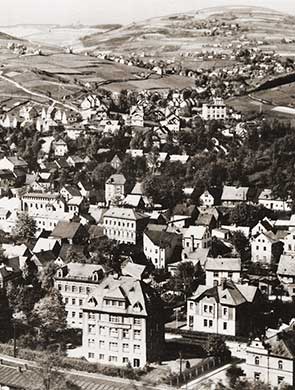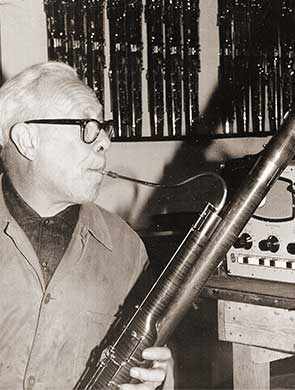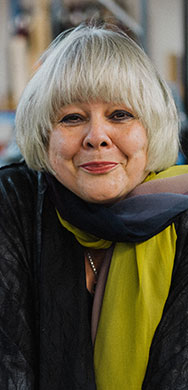One Hundred Years of Püchner Woodwind Instruments – Chronicle
Shortened Version of Historical Catalogue, Dr. Gunther Joppig, Munich
Translated by Jonathan Small, Liverpool.
In Graslitz, Bohemia
On the very day that his first son was born, Vinzenz Püchner registered in his home town of Graslitz his independent firm of woodwind-instrument making. The young Josef Püchner first saw the light of the world on 25th August 1897 in Graslitz, Bohemia, which was at that time part of the Austro-Hungarian Habsburg Empire.
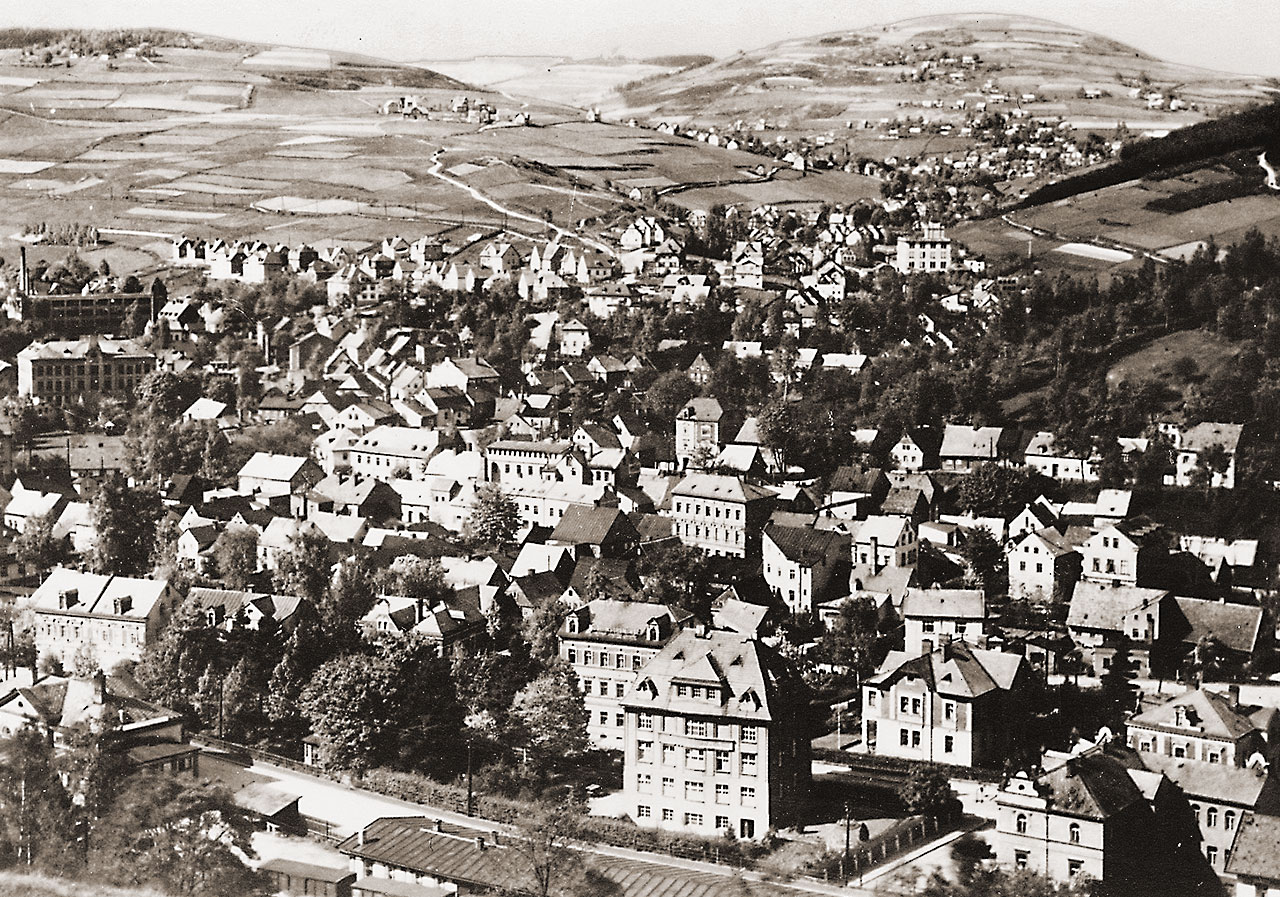
Founder Vinzenz Püchner
Toward the end of the 19th century Graslitz was designated as the chief centre of Austrian instrument manufacturing. Vinzenz Püchner, born on 8th July 1870 in Graslitz, had lost his parents while very young and had gone to live with the Gessner family, where he had come into early contact with the making of wind instruments. He learned to play the oboe, clarinet and bassoon, became later a much sought-after musician and directed a Cadet’s Choir. He learned the building of woodwind instruments at the firm of Vinzenz Kohlert’s Sons in Graslitz, a firm founded in 1840 which made all woodwind instruments from piccolo to contra-bassoon. Vinzenz Püchner with apprentice, Graslitz, around 1938.
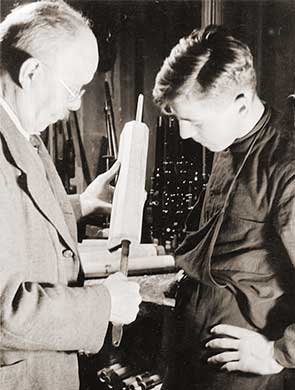
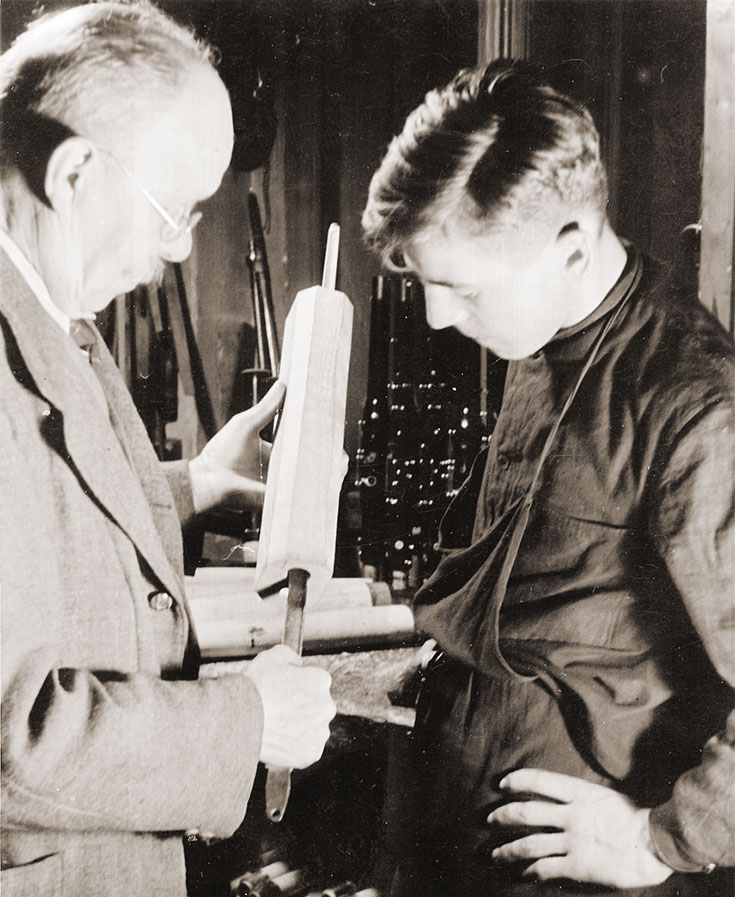
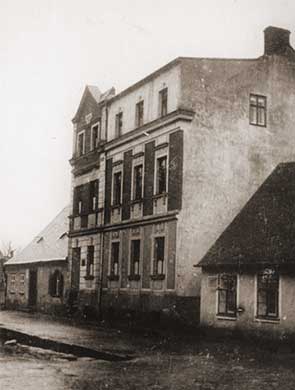
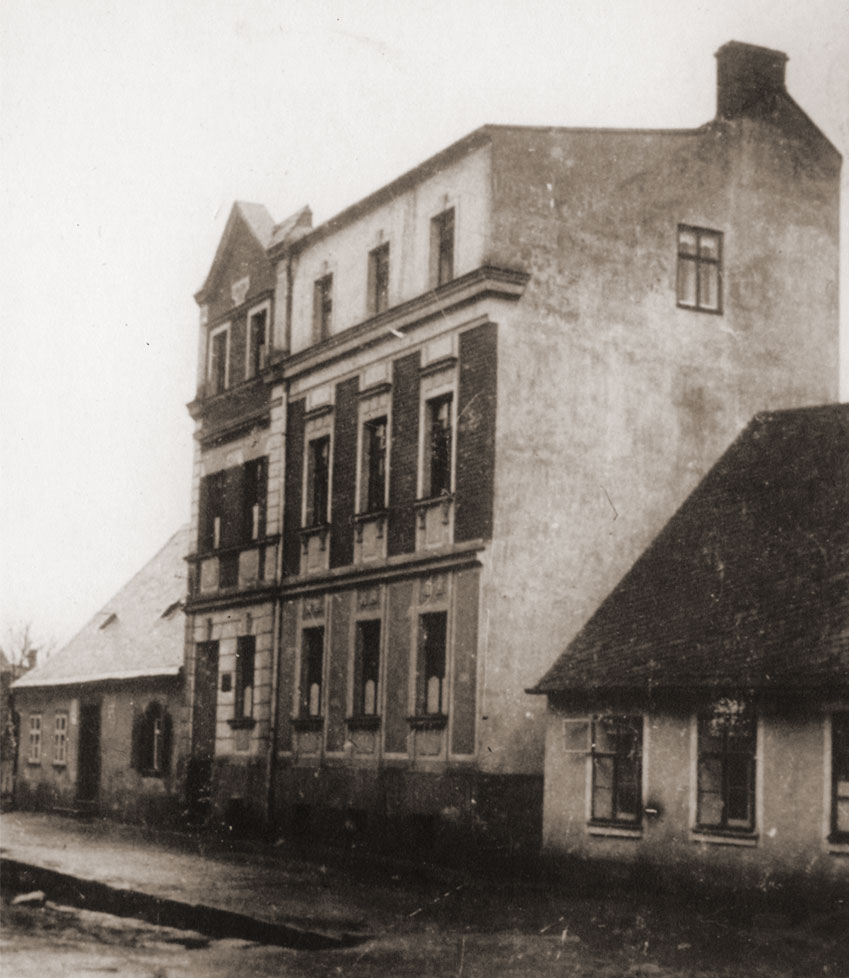
After some years of travelling Vinzenz returned to his Erzgebirge home and established his independence. From the very beginning he placed high value of the taking of painstaking care in the building of his oboes, clarinets, bassoons and flutes. In the carrying out of development and manufacture, through the tuning of his instruments, his experience as a musician stood him in good stead, and also made him able to discourse competently with his customers. Early on he took part in regional exhibitions (Aussig 1903 and Komotau 1913), gained gold medals and fashioned a notable reputation for the still young firm. Vinzenz Püchner also enjoyed great personal respect within his city community. He occupied several honorary positions, among others as Chairman of the Guild. Workshop and residential building „Am Graben“ Graslitz around 1920
Josef Püchner
Vinzenz Püchner was the owner of a property on „Am Graben“ Street No. 543, where he lived with his wife Antonia, who brought forth Josef, their first child and five further children. Josef in time took up his father’s trade, completed his studies in his father’s workshop and thereafter attended the technical school graduating with a master certificate. In 1914 at the age of 17, Josef had to take over the leadership of the firm due to the outbreak of World War I and the calling up of his father Vinzenz into the Austrian military. Later Josef was conscripted for military service from 1915–1918.
Between the World Wars
After the loss of the Great War, the multi-national state of Austria-Hungary, of which Bohemia was a part, broke up into a number of national states. The Bohemian part of the „music-belt“, represented by the chief cities of Graslitz and Schönbach, belonged to the newly-founded Czechoslovak Republic.
To cope with steadily increasing demand, the workshop had to be continually enlarged. In 1938 another building for the bassoon workshop and store was bought.
The period between the wars was one of great political tension between the various peoples of the new Czechoslovak Republic. As a result of the Munich agreement of September 1938 the areas of the Czech Republic occupied by a majority of ethnic Germans were annexed by the Third Reich. The Czechoslovaks had no choice but to tolerate this, since Britain and France had supported the annexation.
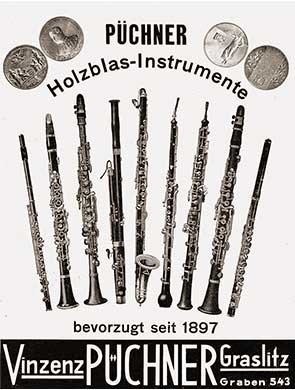
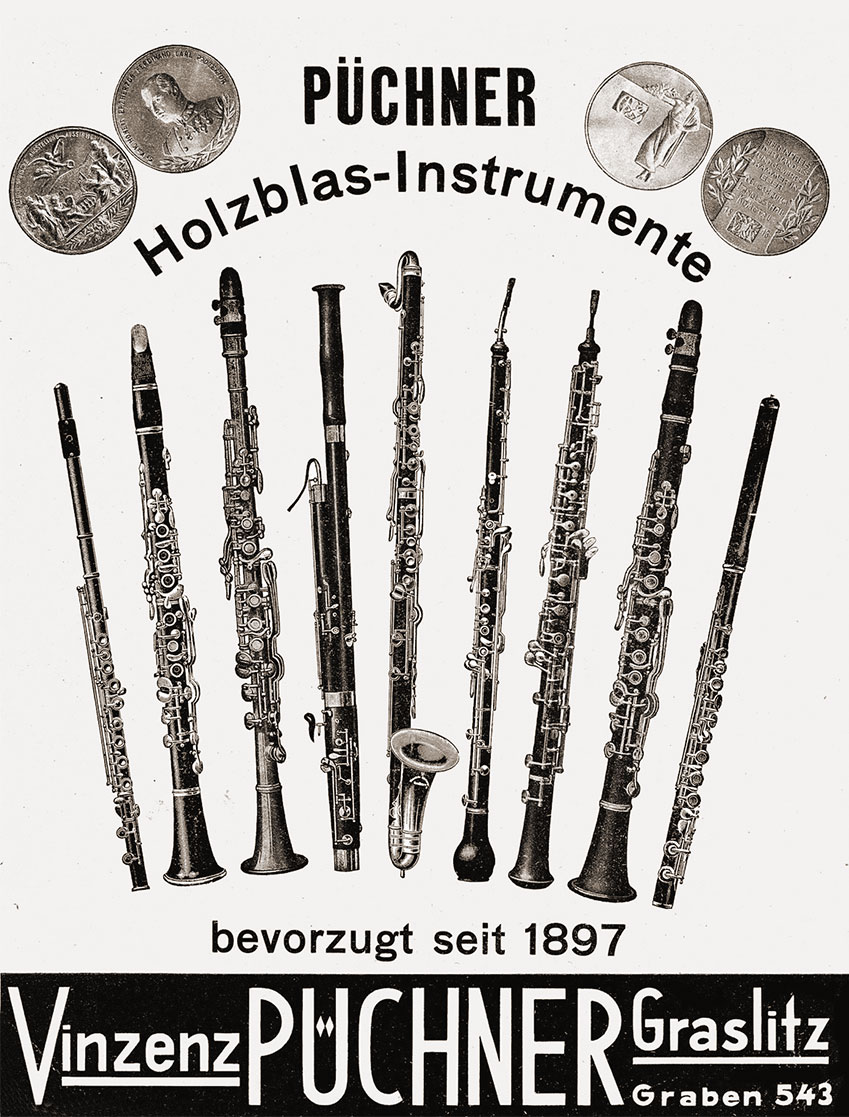
Walter Püchner recalls
Shortly after the annexation to the German Reich, many employees of the Püchner Firm were called up by the German military. Since 1937 the three brothers Josef, Karl and Wilhelm had been partners in the firm. But since Wilhelm Püchner had been conscripted in 1937 by the Czech military and the sales director Karl Püchner died in 1943 the leadership of the family enterprise now fell on Josef Püchner. In 1924 he had married Paula Ubl, and both their children Gerta and Walter were already helping in the business. Walter nowadays recalls: „As a youth I came into early contact with the microcosm of the firm under whose roof I grew up. I experienced the troubles and endeavours of my grandfather and father, who always judged all events in the interests of the firm. I saw the light in their eyes when good wind players and important customers were pleased enough with our instruments so as to purchase them. I pricked up my ears when there were problems with production. I saw in their eyes the helplessness and uncertainty when, in our country’s climate of political tension, events began to develop and broke over our heads. In the lifetime of our firm, currency changed six times: Royal and Imperial Taler – Czech Crown – Reichsmark – Czech Crown – Reichsmark – Deutschmark – each time with depreciation in value.“
Walter commenced his studies as a woodwind instrument maker in 1944. Even during the war instrument production continued although mainly for export, and the firm was partly turned over to war production, to the manufacturing of aircraft parts.
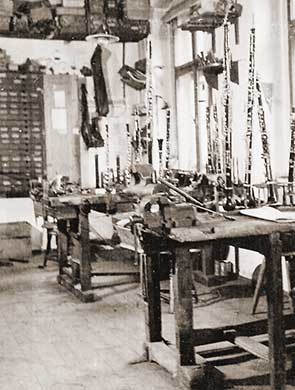
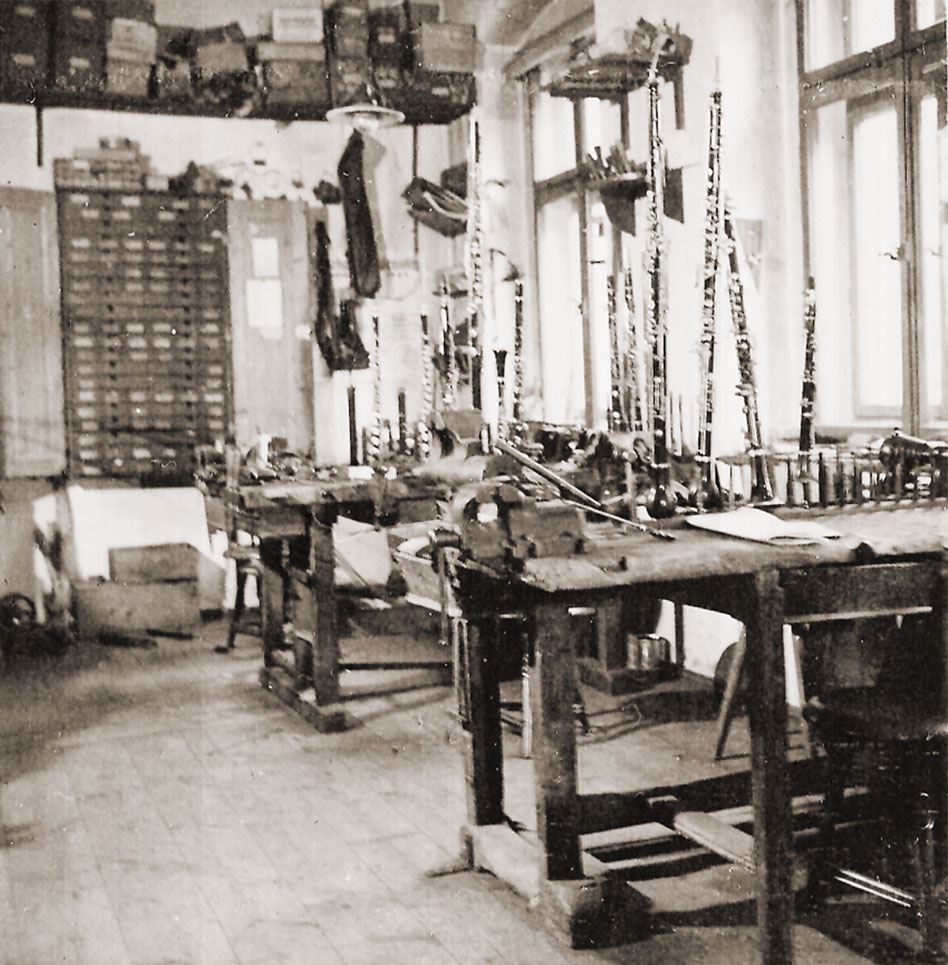
Appropriation and liquidation
In 1945 the Püchner firm was appropriated according to the so-called „Benes decree“, and remained until 1947 under national administration. Three months before the 50th anniversary the firm was liquidated and embodied into the Czech State Enterprise „Amati“, for which Josef Püchner was compelled to work as an instrument tuner. Josef was therefore officially regarded as „indispensable“.
Walter Püchner recalls from that time: „The experiences after the war’s end in 1945, which I experienced as a fifteen-year-old as a collapse, and the time up to April 1948, when our exile took place, would compose an adventure novel. One incident seems to me to be worth telling. In 1947 a commission came from Prague and informed us of the liquidation of our firm. My grandfather removed his cap and said to this commission the following words: „The Lord Giveth, and these Gentlemen Taketh Away“. The silence which reigned following grandfather’s departure, I shall never forget.
The emptiness, originated by the expulsion of all my friends, school colleagues, acquaintances and neighbours, rendered me a stranger in my own home town. The daily visits of my mother to the officers of the exile with representations bore fruit and we were eventually to be exiled on 12 April 1948.
On the morning of our transportation a notice was posted against us alleging „industrial looting“ and we were thoroughly searched. The next blow was immediately before the transport by lorry: father was refused leave of exile. Despite this the authorities did not succeed in their aim to hold us: my mother decided to travel without my father – with my grandparents, my sister Gerti and myself.“
Leave of exile and the company’s reconstruction in Nauheim
Eventually they settled in Nauheim, in the state of Hesse, where other instrument makers from the former Graslitz had already found new ground. Josef Püchner had to remain for the time being in Kraslice, as Graslitz was now called, and only in June 1948 was he also able to emigrate to Nauheim. Vinzenz Püchner died in Nauheim on 23rd November 1948, only a few months after the exile.
Immediately after the currency conversion father Josef and son Walter began the construction of premises in Nauheim and founded the firm „Josef Püchner formerly Vinzenz Püchner, Graslitz“. „Our efforts to find customers for our repairs and rebuilding work among the orchestras in our vicinity were by and by successful. To gain the trust of our customers by good work, and to rely on the word-of-mouth propaganda to make this public were our stock-in-trade.
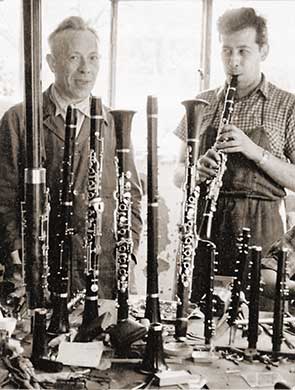
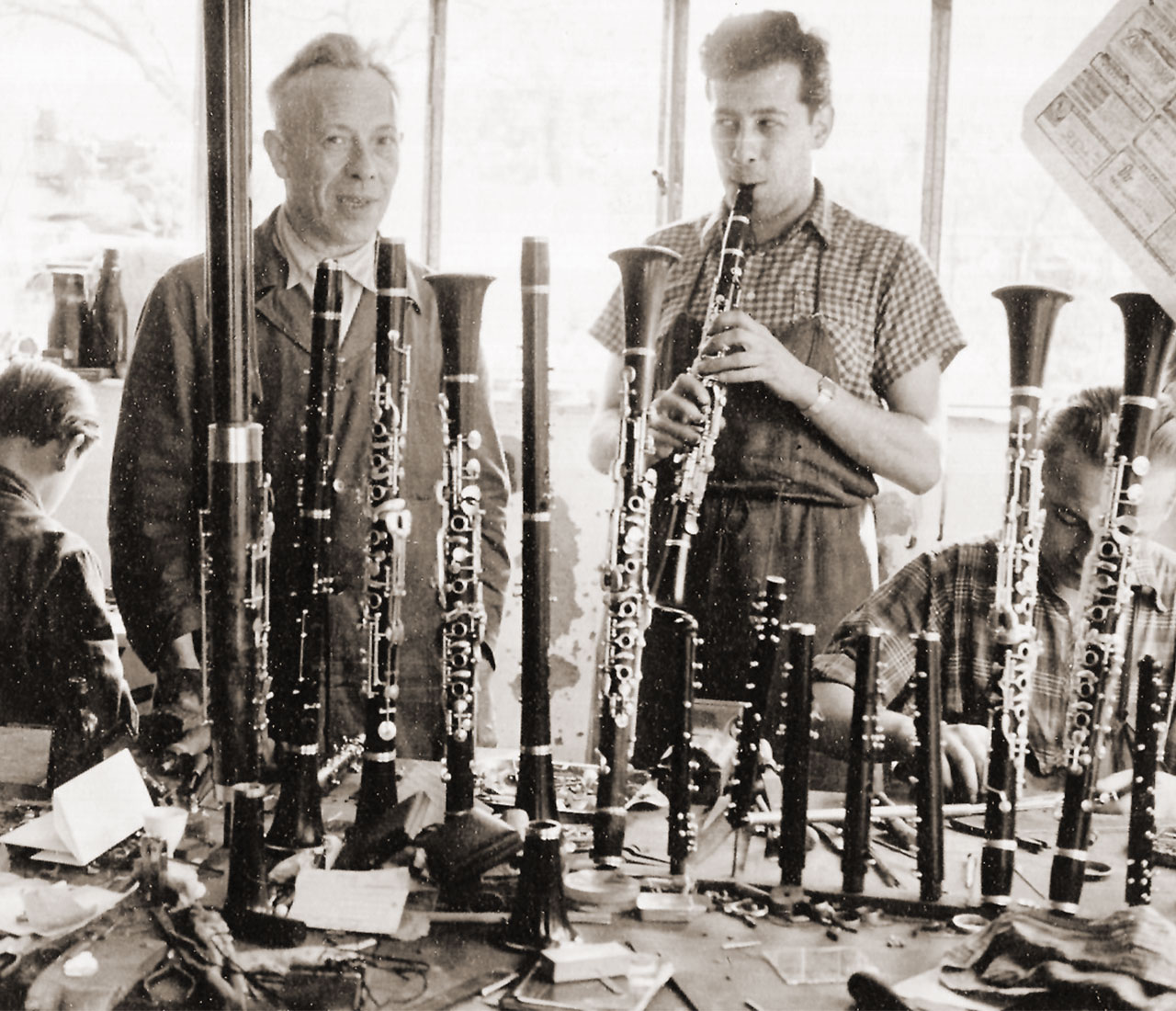
The shortage of dry seasoned wood hindered the construction of new instruments. In this time we fashioned for ourselves a source of trade by making motorcycle horns, music stands and clarinet mouthpieces from India rubber“, Walter Püchner explains.
Then an opportunity arose to buy a supply of older wood, which had been stored for more than ten years, and the making of clarinets, shortly followed by oboes and finally bassoons could be recommenced. In 1955 proper premises was completed on Beethovenstraße, where it stands to this day.
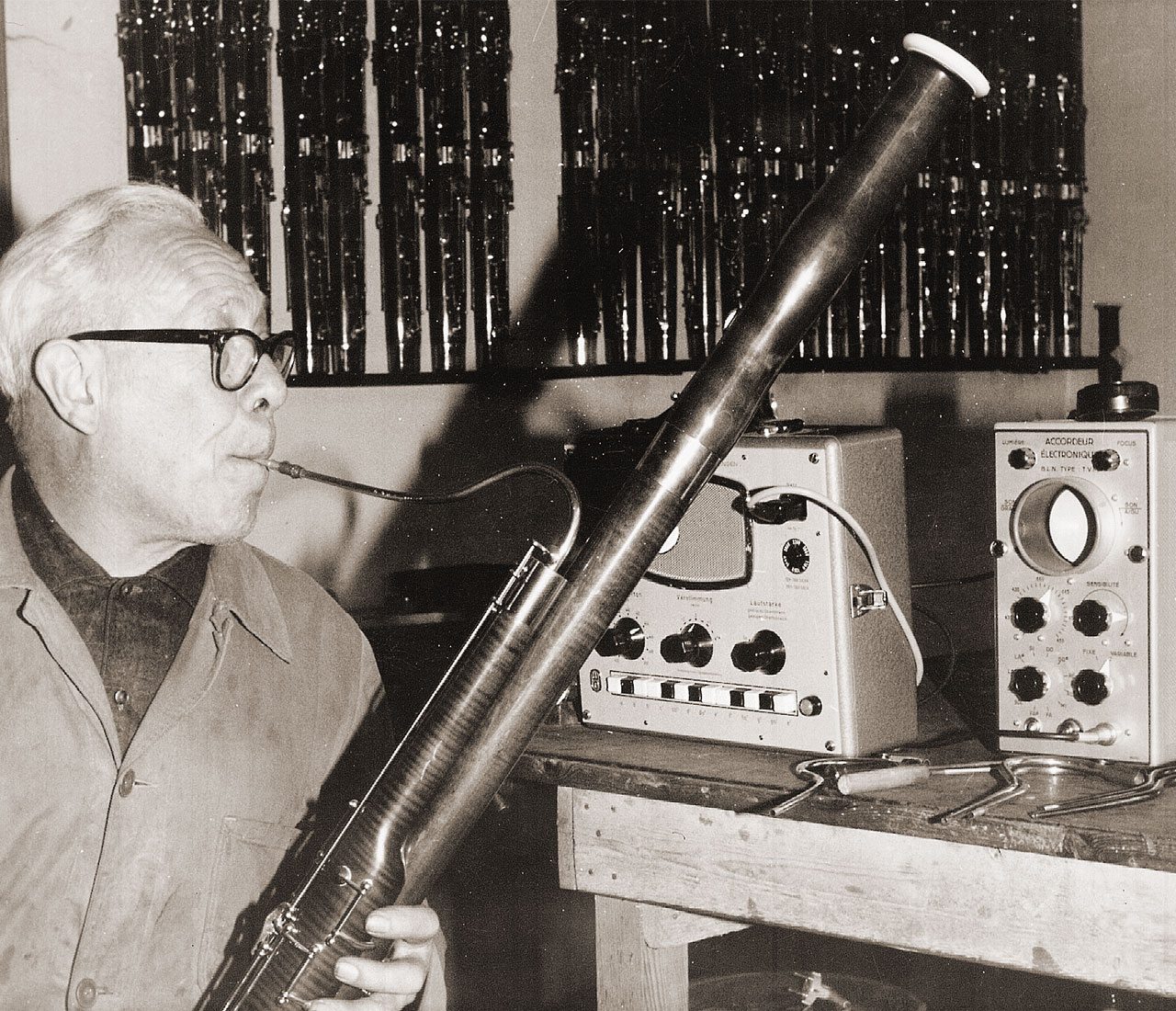
By and by old customers contacts were rebuilt and new ones cemented. Musicians always felt at home in the familiar atmosphere at the Püchner house. Assured by the technical competence of Josef and Walter, assisted by Gerta in financial matters and spoiled by the home comforts provided by Paula Püchner, customers were able to set aside their purely commercial concerns, and long-lasting friendships came to exist between musicians and the Püchner family.
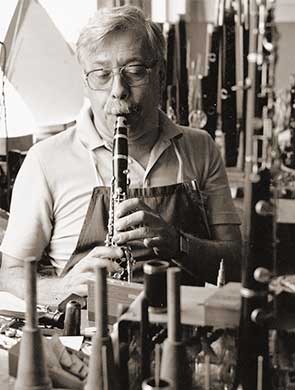
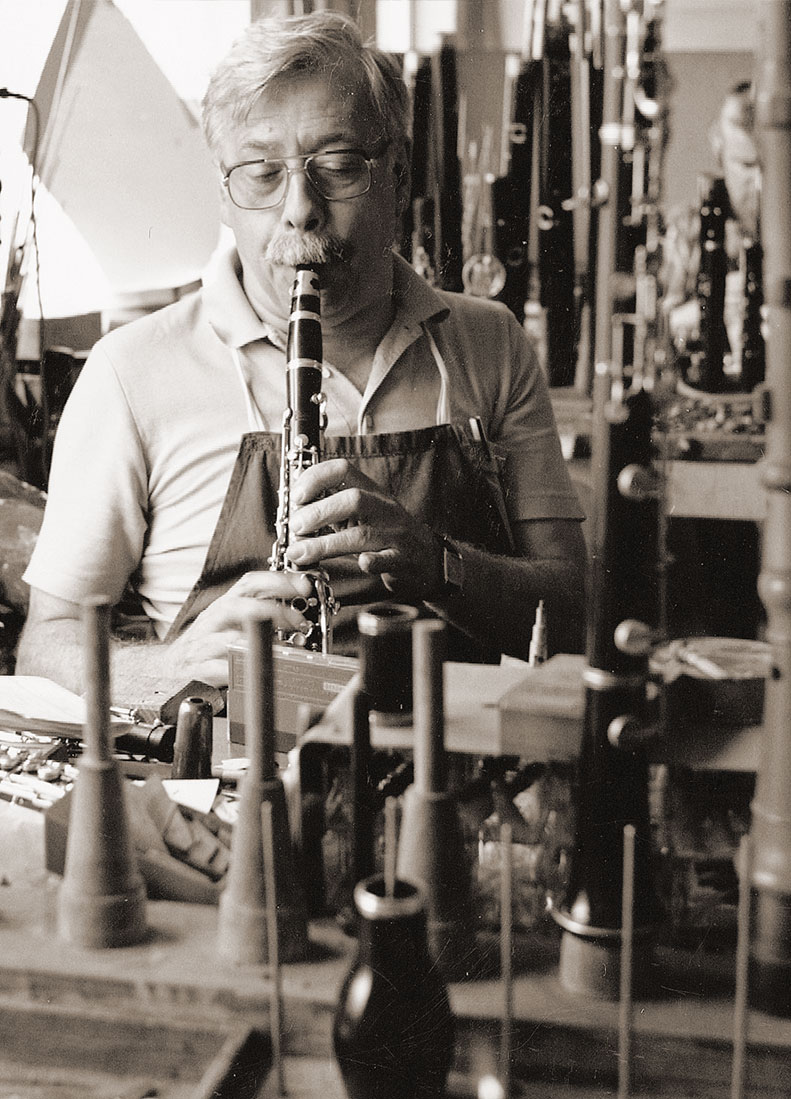
Walter Püchner had passed his master’s examination in the building of woodwind instruments in Koblenz in 1963. In 1967 the firm was re-organised as a general partnership with Josef, Walter and Gerta as partners. Every day, well into his old age Josef Püchner was to be found in the workshop. He passed away at the age of 91 in 1988.
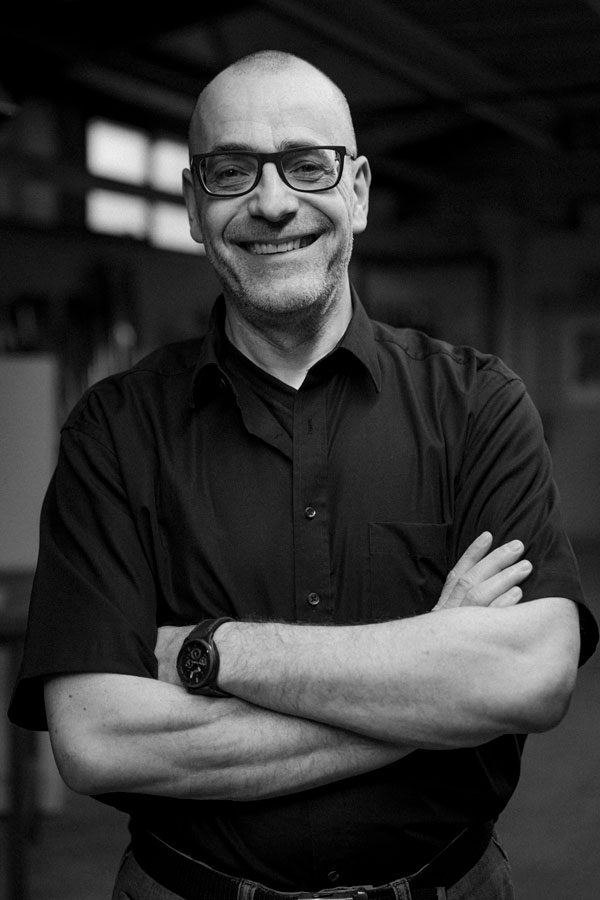
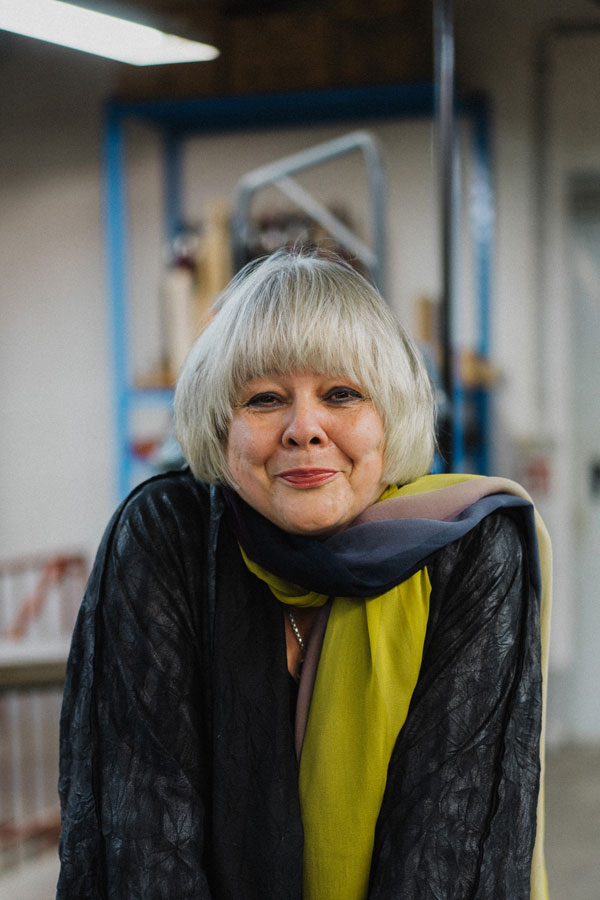
The fourth generation
In the same year the company was re-organised again under the name “J. Püchner Spezial-Holzblasinstrumentebau GmbH” which Walter’s children – Gabriele and Gerald – joined as fourth-generation partners.
After Gerald had completed his instrument maker's studies, he passed his Master's Certificate in Munich in 1992 and since then concentrates on design and development of the entire instrument range, quality assurance und the customer care, domestically and internationally.
Gabriele Nilsson-Püchner undertook piano and oboe studies at the Academy of Music in Darmstadt and passed the SMP exam. After graduation and a lectureship she has worked since 1983 in the management of the firm. She is married to the Swedish bassoonist Magnus Nilsson.
Quality, craftsmanship and experience
The two managing directors Gerald and Gabriele Püchner work in close collaboration with their master craftsmen and team of employees, and are deeply committed to the traditional values of top-quality craftsmanship. “In the globalised fast living times which we now experience, values such as highest quality, care in all details, professional know-how and experience prove to be invaluable”. Gerald and Gabriele are aware of the privileges and the constant challenges which come with this niche in the market.
Püchner has always valued and fostered close relationships with outstanding players. “We try to realise their wishes and artistic endeavours with our deep knowledge of woodwind manufacture. We listen and welcome the ideas and the critical comments about new developments from these artists. Their musical successes are ours also”, summarizes Gerald Püchner.

